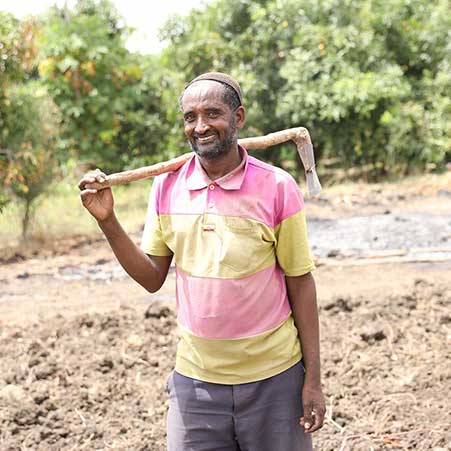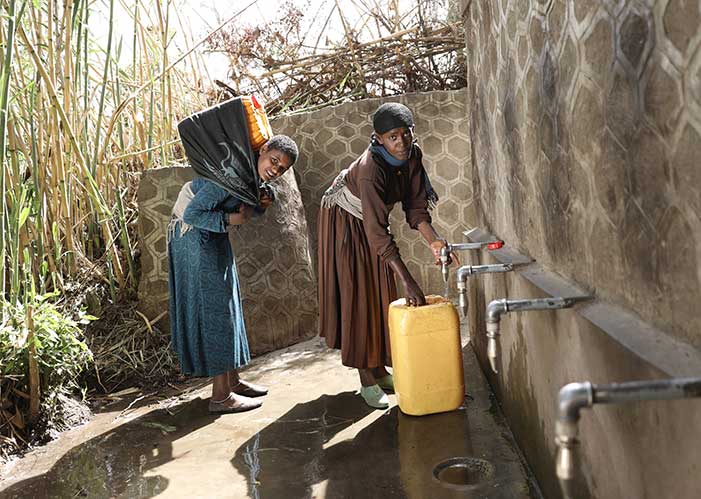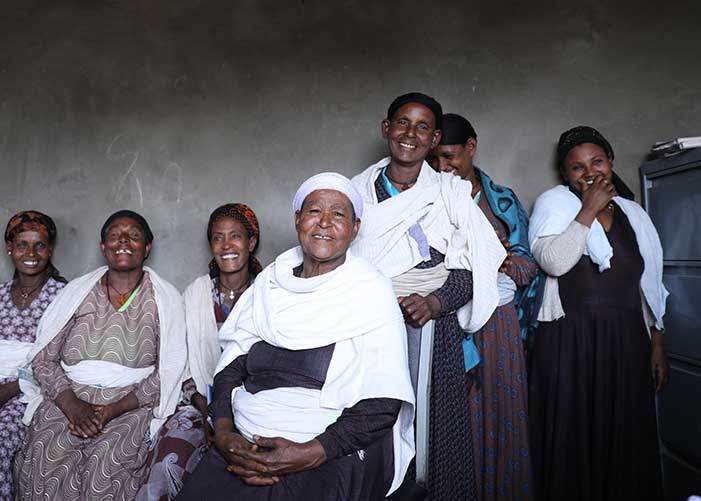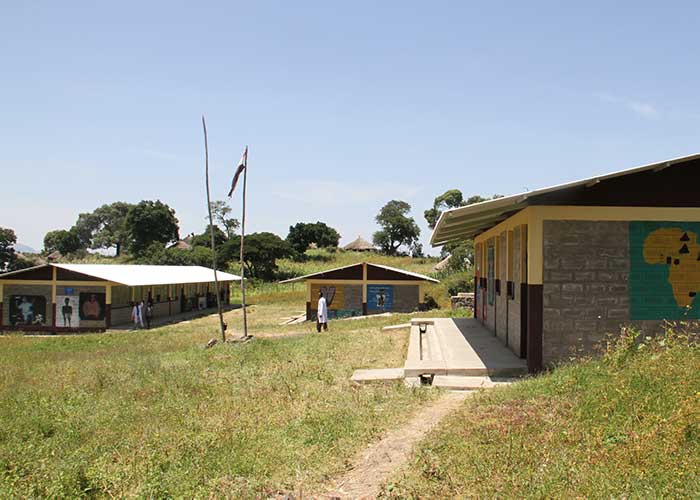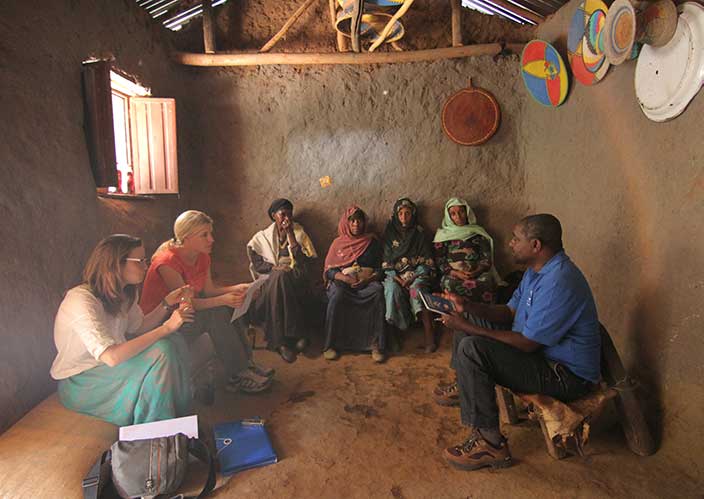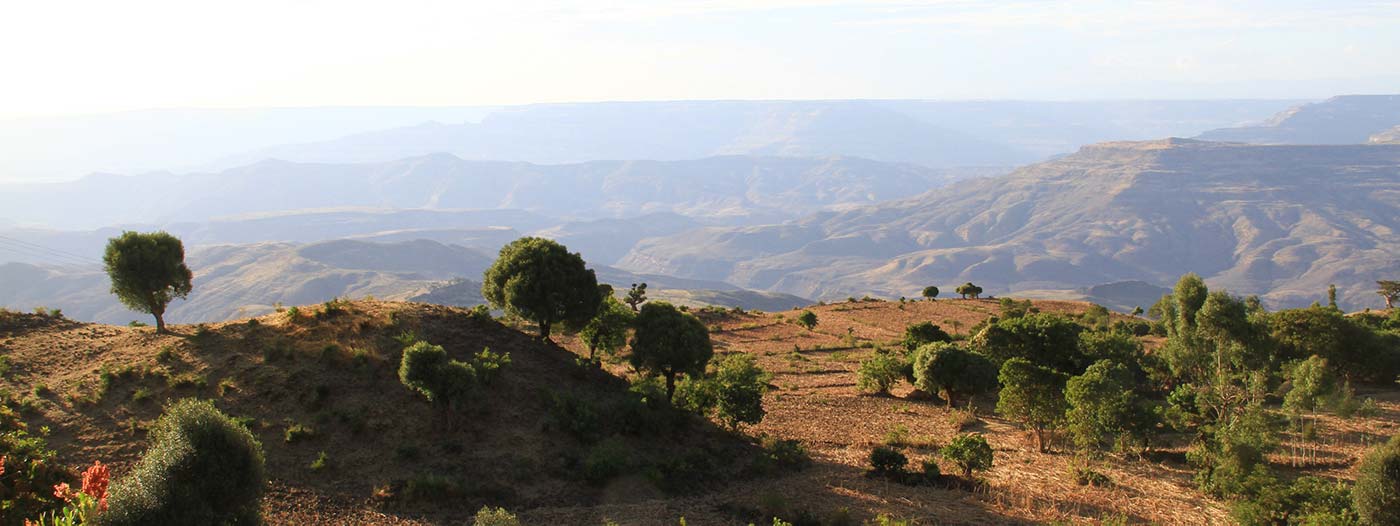
Derra
A dream comes true: we are no longer needed!
For 13 years we were active in the project region of Derra, where the work was financed entirely by the association Menschen für Menschen Austria. The projects were implemented in collaboration with colleagues in Ethiopia, who worked hand in hand with the population.
Overview of the project area

1997-2010

1,500 km²

approx. 210,000

Gundo Meskel

about 140 km (as the crow flies) north of Addis Ababa in the North Shewa Zone. Between 1,400 and 2,500 meters above sea level.
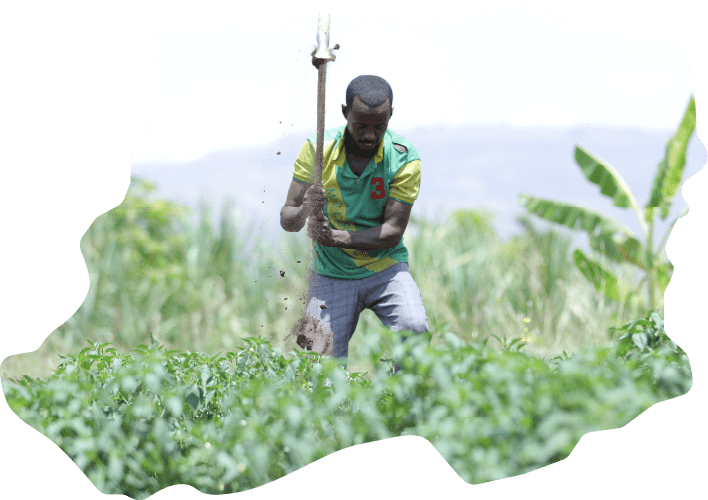
Challenges at the beginning of our work in Derra in 1997
Advanced soil erosion and deforestation in particular posed a major challenge at the beginning of the work in Derra. Even in this very remote region, people have to make a living by cultivating fields that are often far too small. Since there is a risk of malaria in the valleys where the arable land is located, people live in the higher regions. They often have to climb and descend more than a thousand meters per day to cultivate their tiny arable plots. A particularly big problem was also the virtually non-existent supply of clean drinking water, plus poor access to educational opportunities.

98 % of the people did not have clean drinking water.
At the beginning of our work in 1997, 2 out of 100 people did not have access to clean drinking water.

13 % of the children were able to attend school
Education is the key to the sustainable development of entire regions.

19 people worked there in health care
Derra is home to approximately 210,000 people in an area that is slightly more than half the size of Austria’s Vorarlberg province.


What we did in Derra
Based on the principle of capacity building, the staff of Menschen für Menschen implemented a variety of projects in the areas of agriculture, water, education, health, and income from 1997 to 2010.
The work was always implemented hand in hand with the population and completed projects handed over step by step to the responsibility of the population and local authorities. In this way, an important foundation for further development was created in Derra. After the project work was completed, a monitoring team from Menschen für Menschen remained on site to provide advice and support in the event of any challenges. Since 2014, no Menschen für Menschen staff have been in Derra on a permanent basis, so our help is no longer needed.
The work was always implemented hand in hand with the population and completed projects handed over step by step to the responsibility of the population and local authorities. In this way, an important foundation for further development was created in Derra. After the project work was completed, a monitoring team from Menschen für Menschen remained on site to provide advice and support in the event of any challenges. Since 2014, no Menschen für Menschen staff have been in Derra on a permanent basis, so our help is no longer needed.
Project report (excerpt)
Beyond the initiatives indicated here, further activities in the fields of agriculture, water, education, health, and income were implemented in order to create a good basis for the sustainable development of the Derra region.
Status of the evaluation unless otherwise specified: 12/31/2019
Status of the evaluation unless otherwise specified: 12/31/2019

78 Nurseries established
The nurseries grow trees, grasses and shrubs for reforestation, as well as fruit tree saplings for families. The nurseries are later transferred to the responsibility of the population or local authorities.

749 Hectares of land reforested
The saplings from the nurseries are planted in fenced areas in collaboration with the population. The village community takes care of the maintenance and protection of the reforestation areas.

228 Hand pump wells and spring catchments constructed
Wells and spring catchments are built near the villages. Clean, healthy drinking water sustainably improves people's health and saves them a lot of time collecting water.

38 Schools built
Schools supplied by Menschen für Menschen are built according to a proven principle that is characterized by a particularly robust construction. The schools can then provide a clean, bright place to learn for learning for decades to come.

7,664 Sight-saving operations performed
The main causes of blindness in rural areas are cataracts and trichiasis. The latter can be avoided simply through more hygienic living conditions. In the final stage, however, only surgery protects against blindness.

4,050 women participated in the microcredit program
Microcredits often give women their first opportunity to earn an income on their own. The credit groups operate independently, and the entire region benefits from economic development in the long term.
The people behind the numbers: our success is measurable and changing lives.
To make our work's success verifiable, it's not just about the numbers and data, but first and foremost about the people. The following stories tell of the big and small successes achieved in Derra.
What we did in Derra. Insights into our work
We have compiled a few exemplary milestones and achievements that show what was made possible in Derra with the support of our donors between 1997 and 2010.
